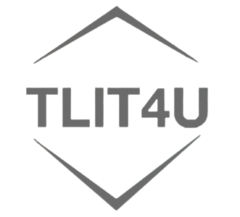Project result 3 refers to the design of game-based transliteracy training. The many concepts contained in the term (media, vision, information, data, etc.) require the use of more innovative approaches to their presentation and teaching. The target group of this project result are students and librarians, who will be the main users of the developed product. Teachers are also a target group, but in this case indirectly. The project result is innovative in terms of its format – the game-based approach, despite its popularity, is not widely used for educational purposes. Since the goal is to create a training tool, it is necessary that it should contain instruments for assessing the achievements of players (learners) and a conceptual framework of the results to be achieved by them. The expected result of the output is related to the development of a pilot model of game-based transliteracy training, applicable both in universities and in non-formal education centres such as libraries. The impact from the development of a pilot training model in this field is related to the improvement of the knowledge and skills of the target groups, in a way as close as possible to the modern educational and social context.
ТРАНГРАМОТНОСТ И ДИГИТАЛНА УВЕРЕНОСТ. СТУДЕНТСКИ BRAINSTORMING СЕМИНАР. 18.02.2023
–
TRANSLITERACY AND DIGITAL FLUENCY CURRICULUM. STUDENT BRAINSTORMING SEMINAR. 18.02.2023
Българският екип на TLIT4U – „Обогатяване на знанията и подобряване на уменията за трансграмотност чрез образователни игри“ инициира съботен студентски семинар на тема „Трансграмотност и дигитална увереност“. Целта на събитието беше студентите да съставят учебна програма по трансграмотност чрез подхода Design Thinking. За целта те бяха запознати с основните стъпки в Design Thinking концепцията, с базовите понятия в теорията на трансграмотността, както и с уменията, присъщи на дигитално уверените хора. След увода в проблематиката, студентите получиха нужните материали, време и насоки за изпълнение на поставената задача. Участниците се разпределиха в три отбора с по един ментор. В кратък срок отборите успяха да съставят трите версии на учебна програма по трансграмотност и дигитална увереност, следвайки петте фази на Design Thinking подхода: съпреживяване, дефиниране, анализиране, конструиране и изпробване на прототипа. Екипите размениха учебните програми и ги подложиха на анализ и градивна критика по между си. Всеки тийм получи време да коригира и довърши прототипа си, след което представи финалния му вариант.
Работата със студенти е най-мотивиращият фактор за всеки университетски преподавател и затова се стремим да постигнем по-плавен, продуктивен и приятен процес на обучение. Прилагането на иновативни образователни подходи по време на занятията повишава креативността на преподавателя и студента, в резултат на което е налице по-ефективното усвояване на знания и умения.
Целта на този семинар бе да стимулираме студентите сами да изградят система и план, по който биха искали да се обучават в контекста на трансграмотността и дигиталните умения. Елементите на техните учебни програми ще се приложат при разработката на игрите по проект TLIT4U, както и в занятията със студенти занапред.
The Bulgarian team of the project “TLIT4U – Improving Transliteracy Skills through Serious Games” organized a Saturday student seminar on “Transliteracy and Digital fluency”. The aim was for students to design a transliteracy curriculum by adopting the Design Thinking approach. They were introduced to the basic steps in the Design Thinking concept, the basic terms in transliteracy theories, and the skills associated with digitally fluent people. After the introduction, the students were given the necessary materials, time, and guidance to complete the set task. Participants were divided into three teams with one mentor each. In a short period, the teams composed three versions of curriculums on transliteracy and digital fluency, following the five phases of the Design Thinking approach: empathizing, defining, ideating, prototyping, and testing. The teams exchanged their curriculums and put them through analysis and constructive critique. After a reflection session, they were given time to proofread, finalize their prototype and present the final version.
Working with students is the most motivating factor for any university lecturer, and because of that, we strive to make the learning process smoother, more productive, and enjoyable. Applying innovative educational approaches during classes enhances the creativity of the lecturer and the student, resulting in more effective absorption of knowledge and skills.
The seminar stimulated the students to design a plan on how they would like to learn in the context of transliteracy and digital skills. Elements of their curricula will be applied in the TLIT4U project games and in future classes with students.
DIDACTIC MATERIALS FOR GAME-BASED LEARNING
18.04-24.04/2024
Parma, Italy
